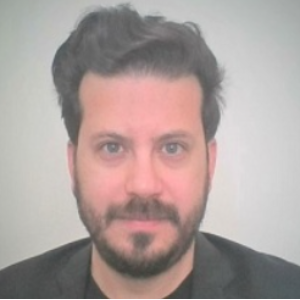Title : Pyrolytic production of biofuel intermediates in the presence of zeolites: A focus on continuous operations
Abstract:
Renewable energy sources principally used for power and heat production (wind, solar, etc.), are not suitable for the production of conventional fuels and raw materials (e.g. petroleum-based chemicals) currently used in the existing industries. To continue the production of chemicals and (transportation) fuels, and to contribute to the sustainability of the current petrochemical-based economy, biogenic resources (e.g. biomass, MSW) should be utilized. Pyrolysis has been considered as a viable thermochemical conversion technology for the production of fuel intermediates, chemicals, and heating sources from the aforementioned resources. The outcome of a pyrolysis process depends on several factors related to the type and the properties of the biogenic feedstock and to the reactor, process conditions, and intended application of the final products. By carefully tuning those, a pyrolysis process can be designed for the maximized production of a liquid product, viz. fast pyrolysis bio-oil (FPBO). For specific applications of FPBO, like in diesel or gasoline engines, or as an intermediate bio-based feed material in the existing petroleum refineries, a certain degree of upgrading including the (partial) removal of oxygen and cracking of the oligomers is required.
For this purpose, zeolite-based heterogeneous catalysts can be utilized. This can be achieved by (partially) replacing the heat transfer material by a solid catalyst (in situ). Besides, the primary pyrolysis vapors can be catalytically reformed in a separate catalytic reactor (e.g. fixed or trickle bed) just after the fast pyrolysis reactor (ex situ vapor phase upgrading, i.e. ex situ VPU). The presence of the catalyst favors oxygen removal via decarbonylation (CO rejection), decarboxylation (CO2 rejection) and dehydration (H2O removal) reactions. VPU induces vapor phase reactions that cause a change in oxygen functionalities and oxygen concentration, alleviate the acidity, and increase the calorific value of the produced liquid product. Hence, such a liquid biofuel intermediate becomes more similar in chemical composition to current conventional fuels. On the operational side, however, continuous bench- and pilot-scale testing with zeolite-based catalysts have shown poor results: de-oxygenation of the pyrolysis vapors appears to go along with a progressive reduction in organic liquid yield. Apart from any control over the catalyst activity, selectivity and lifetime, the other critical issue is in the process design which is complicated by the rapid catalyst deactivation through coke formation and catalyst poisoning by the feedstock originated minerals. Hence, for a successful implementation of technology, the translation of laboratory results to viable process concepts and pilot plant trials by addressing key issues like the most suitable processing mode, reactor technology, and the way of heat integration of the process are needed. The objective of this talk is to focus on the research and development advances and trends in the field of pyrolytic production of biofuel intermediates in the presence of zeolites based on precisely selected literature studies. The spotlight will be on research aiming at optimal catalytic process conditions, reactor technologies, and the end product properties. The final goal is to come up with a clear picture on how to realize this technique at a commercial/industrial scale.



